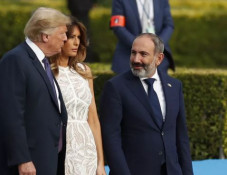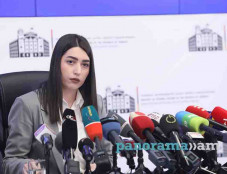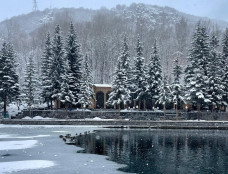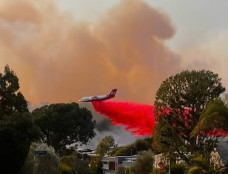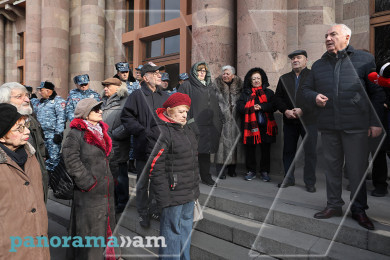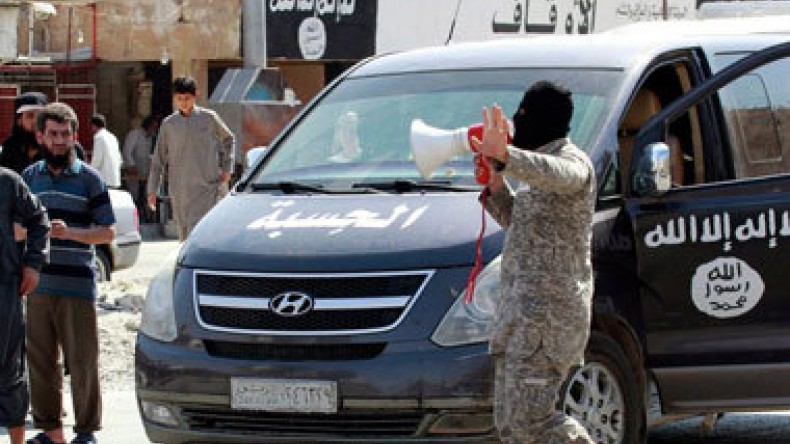
Islamic State militants steal UN aid, use it to buy locals' allegiance
Propaganda photos released by a Syria-based section of the militant group show what appears to be rebranded United Nations humanitarian aid being distributed to people in need, Sputnik News reported.
The media-savvy group's images show UN-labeled aid boxes papered over with IS flags and labeled 'zakat', a traditional form of Islamic charity for the poor.
The boxes, which contain rice, oil and other basic supplies, are part of a UN aid effort aimed at easing the suffering of millions of Syrian refugees and internally displaced persons affected by the Syrian civil war. Among the 12.2 million people believed to be internally displaced in Syria, 40 percent are believed to be located in territories under the control of the Islamic State or the Jabhat al-Nusra. Rashid Khalikov, UN Director of the Office for the Coordination of Humanitarian Affairs, told RIA Novosti in December that "of them, 212,000 people are practically trapped as they live in the seized regions and parties to the conflict cannot agree [on] the delivery of humanitarian cargo there."
In a December 2014 report, the UK-based think tank Overseas Development Institute, concentrating on aid delivery to areas of Iraq that are under militant control, noted that aid workers in some territories were hassled or stolen from. The report noted that in other areas, the IS allowed for the distribution of medical supplies and food, so long as it was first transferred to plain black bags without aid agency logos and transferred to IS representatives via local mediators, with no direct UN presence. Some of the aid is reported to have been branded 'IS Department of Relief'.
The ODI noted the problematic nature of negotiating aid distribution with the jihadi militants: "although duty-bound to deliver aid impartially, based on need, there is a very real fear that working with IS will inadvertently benefit the group materially, confer on it undue legitimacy in the eyes of the Iraqi people and prolong the conflict and suffering."
Newsfeed
Videos





